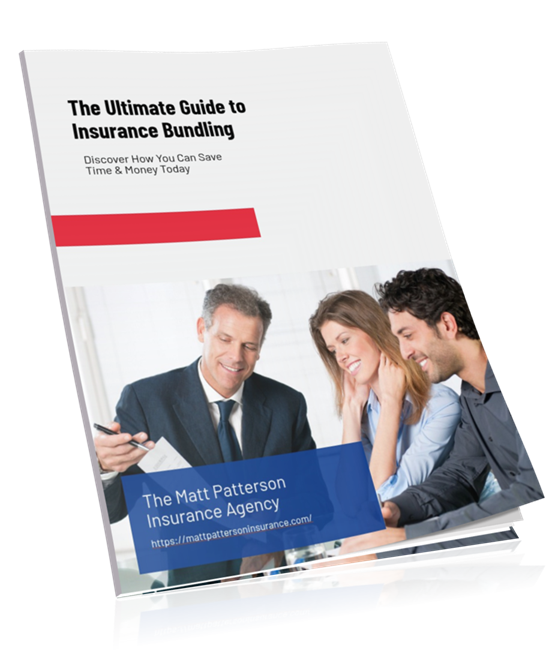Running a small business often means wearing a dozen hats at once. You’re managing employees, serving customers, keeping books, and making decisions that affect your future every day. With so much on your plate, insurance sometimes becomes “set it and forget it.”” If you don’t have a trusted financial advisor in San Marcos TX guiding your coverage choices, it can lead to costly mistakes.
When liability insurance policies lapse or contain unnoticed gaps, a single claim can end up threatening years of hard work. Understanding how lapses happen, how gaps appear, and what they mean for your business is the first step in protecting what you’ve built.
Understanding Lapses vs. Gaps
A lapse happens when a liability insurance policy expires or is canceled, leaving the business uninsured for a period of time. Even short lapses create a window where every incident is uncovered.
A gap in coverage works differently. This occurs when your policy is active, but its exclusions or limits leave certain events unprotected. Think of a gap as a hole in the net. The policy might look strong at first glance, but a specific loss can slip right through.
Both scenarios carry risks that are most dangerous for small businesses, which typically don’t have extra capital to absorb six‑figure claims.
How Coverage Lapses Occur
The most common cause of a lapse is surprisingly simple: missed payments. Changing a business bank account, forgetting to update billing details, or overlooking a renewal notice can cancel a policy overnight.
Occasionally, businesses are tempted to self‑insure by letting coverage end during slower months, only to reinstate it later when operations are busier. This exposure is risky, since accidents and claims rarely follow a calendar.
When a lapse occurs, no insurer will cover a loss that happens in the uninsured period. Even a short gap of a few days can have serious consequences, because claims are based on when loss occurs, not when coverage is reinstated.
How Coverage Gaps Appear
Gaps usually form because a business outgrows its policy or because the owner assumes a policy covers more than it does.
One example is a catering company that purchased general liability years ago but never added liquor liability. When a guest left an event intoxicated and caused an accident, the claim was excluded.
Another example is an IT contractor who assumed property insurance would extend to liability if a computer virus impacted a client. Without a separate professional liability endorsement, the business was left uncovered.
General liability policies are broad but not limitless. The exclusions matter just as much as the coverage listed, and those exclusions vary depending on your industry and activity.
The Impact on Small Business
Large corporations can absorb claims with cash reserves or legal teams. Most small organizations cannot. For them, a major uncovered event can mean draining personal finances, selling assets, or closing completely.
Consider:
- A customer slip and fall claim can easily reach tens of thousands after medical expenses.
- A lawsuit over faulty services or an employee accident can run into six figures.
- Contract partners often require proof of continuous coverage. A lapse could jeopardize contracts or vendor agreements.
- When cash flow is tight, even defending against a claim (before settlements or judgments) can threaten stability.
How to Prevent Lapses and Gaps
The good news is that both problems can be avoided through a few proactive habits.
- Set calendar reminders for renewals. Many small business owners set automatic payments and then forget about them. If you change banks or cards, double‑check that policies continue seamlessly.
- Review coverage annually. As your business evolves, your insurance should evolve too. New employees, expanded services, or higher revenue can all require higher limits or new endorsements.
- Read exclusions. Don’t assume “general liability” covers every risk. Ask your agent to highlight what is not covered.
- Work with a local advisor. Agents who understand your industry and region can point out common risks and recommend coverage options you may not have considered.
- Don’t cut corners during slow seasons. Saving a little premium during a quiet month isn’t worth exposing the entire company to uninsured losses.
Frequently Asked Questions About Business Insurance
My business is brand new and very small. Do I really need all these different policies?
While you may not need every policy from day one, it’s crucial to understand your exposures. If you have even one employee, you have an EPLI risk. If you have a website and collect customer emails, you have a cyber risk. A good agent can help you prioritize, starting with the most critical coverage like General and Professional Liability and creating a roadmap to add other protections as your business grows.
What is the difference between General Liability and Professional Liability (E&O)?
This is the most common point of confusion. Think of it this way: General Liability covers you for things your business does that cause physical harm, like a customer slipping and falling. Professional Liability covers you for things your business says or fails to do that cause financial harm, like your professional advice causing a client to lose money.
Isn’t Cyber Insurance incredibly expensive?
The cost has been rising, but it’s a reflection of the immense and growing risk. The cost of a single data breach for a small business can easily reach tens or even hundreds of thousands of dollars. When weighed against that potential cost, a cyber policy is a vital and necessary business expense. An agent can help you find a policy that is scaled to the size and risk profile of your business.
I have a Business Owner’s Policy (BOP). Does that include these other coverages?
A BOP is a great starting point that conveniently bundles General Liability and Property Insurance. However, it typically does not include Professional Liability, Cyber Liability, or EPLI. These are specialized coverages that almost always need to be purchased separately or added as specific endorsements. Assuming your BOP covers everything is a very common and dangerous mistake.
How can I possibly know all the risks my specific business faces?
You don’t have to be the expert. That’s our job. A thorough risk assessment is the first step in any client relationship. We sit down with you to understand the unique details of your operation. This allows us to act as your risk management partner, identifying your specific exposures and building a customized insurance program that truly protects you.
Final Thoughts
Liability insurance isn’t a “check the box” item and then forget. Gaps and lapses can happen quickly, and they often come to light at the worst possible moment: when filing a claim. For business owners, staying proactive with liability coverage is less about annual paperwork and more about safeguarding your livelihood with the right mix of San Marcos insurance solutions.
At Matt Patterson, we work with small businesses to spot those overlooked gaps before they become costly, and to keep coverage continuous so that even simple oversights don’t turn into major risks. Whether you need comprehensive business insurance in San Marcos or simply a fresh look at your existing policy, we’re here to help protect what you’ve built.
If it’s been a while since you reviewed your liability policy, take the time now. A quick conversation and policy review could save you from expensive surprises tomorrow.






